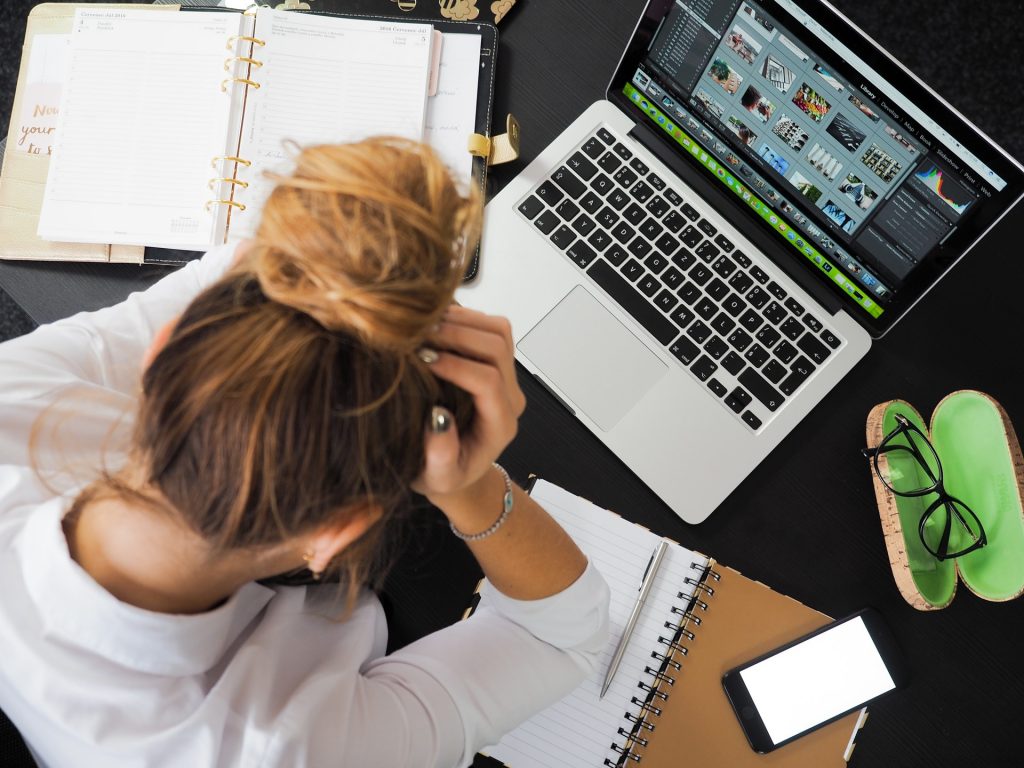How Entrepreneurs Can Manage Crippling Anxiety
One of the most common mental health conditions to cripple an entrepreneur’s progress is anxiety. Just like with clinical depression, anxiety can wreak havoc with the best laid plans and intentions when it comes to growing and maintaining a successful business.
As with all mental conditions and illnesses, anxiety isn’t about being strong or weak. Crippling fear and chronic tension can creep up on anyone, given particular circumstances and/or genetic predispositions. Even confident, outgoing, already successful, and seemingly resilient business leaders can be hiding overwhelming and long-term fears that negatively impact their family life and physical health.
Symptoms of anxiety in entrepreneurs
Anxiety is insidious. For many, it develops slowly over time and grows in intensity. It becomes habitual and reveals itself in the form of being quick to anger, indecisive, depressed, lethargic, and prone to panic attacks. Physically, it can result in loss of appetite or overeating, breathlessness, heartburn, ulcers, alcohol dependency, insomnia, reduced libido, and bodily tension.
Overwork can be an escape for entrepreneurs trying to focus away from their fears but more often than not, this can lead to poor business results. Chronic and intense anxiety causes impaired decision making, confidence shot to pieces, social isolation, and physical health hampered by lack of sleep and poor lifestyle choices.
Reasons for anxiety in entrepreneurs
It’s not surprising entrepreneurs are more prone to anxiety and also depression compared to non-entrepreneurs. Entrepreneurship requires creativity, ingenuity, and bravery. It’s certainly not a career path suited to most people. Entrepreneurs are different to everyone else, as studies have alluded to.
As a business creator and owner you’re in charge of every decision when it comes to growing your company. There are often large sums of money involved, months of planning, years of hard work, and long stretches of time where success can seem a distant hope. It’s stressful at the best of times and utterly terrifying at worst.
Fear, every now and then, is a natural part of entrepreneurship but it’s when this fear turns into chronic anxiety, that things become dangerous and self-defeating.
Difference between anxiety and normal fear
Anxiety is different to the natural fears we all have on occasion. If we saw a bear running towards us, then it would be beneficial to feel a short burst of terror as it would give us the strength to fight or run. Feeling a surge of adrenaline before a big business decision is also natural and can focus our minds on making the best choice.
However, when these terrors and tensions remain, day after day, night after night, for weeks and months, then the fear has become an anxiety disorder. The natural fears have morphed into an illness, and it’s at this point that professional assistance should be sought immediately. This type of fear is not the healthy adrenaline rush that can inspire you to greatness. It’s quite the opposite.
How to manage crippling anxiety – and better still, how to prevent it
Whether you suffer from chronic anxiety or feel you’re heading in that direction, there are a number of things you can do to manage the condition. However, before all else, we recommend seeking the advice and assistance of a medical professional as soon as possible. They will be able to prescribe a course of treatment which might include Cognitive Behavioral Therapy (CBT), medication, and/or guided relaxation exercises.
So what are some habits you can introduce to your schedule to alleviate anxiety?
Exercise
Regular exercise encourages your brain to release serotonin, which is a natural mood enhancer and relaxant. Many entrepreneurs forgo exercise to work longer hours instead but this can have a hugely damaging impact on both physical and mental health.
Aim for 2-3 moderately intensive exercise sessions each week which make you breathless and break out in a sweat. Examples of good exercises include running, fast walking, swimming, cycling, team sports, and CrossFit.
Reduce your alcohol intake and smoking
Excessive alcohol and smoking both lead to increased general anxiety levels. There’s sometimes a culture among certain entrepreneurial groups to drink heartily and smoke plenty but this can be extremely damaging over the long-term.
Alcohol, for example, might mitigate the symptoms of anxiety for a short time but the anxious feelings are often worse once the effects of alcohol have worn off. If you’re feeling chronically anxious then try to reduce the amount of alcohol you drink and numbers of cigarettes you smoke.
Reduce your caffeine intake
Caffeine is a powerful stimulant. Excessive caffeine can increase existing anxiety levels and also negatively affect sleep patterns. Any more than 3 cups of coffee a day is likely to exacerbate an anxiety disorder and lead to symptoms such as agitation, restlessness, twitching, nausea, and dizziness.
Where possible, reduce the amount of caffeine you consume. Switch to decaffeinated alternatives or other types of hot drinks. If you drink coffee then consider switching to tea, which has lower caffeine levels. Also be aware that many energy drinks also contain high levels of caffeine
Practice mindfulness
Mindfulness is the practice of focusing your attention outside of your habitual thought processes. Where normally you’d identity with the thoughts racing through your mind, mindfulness allows you to witness these thoughts as merely mental noise. You become less identified with the fears, worries, and problems your mind conjures up.
There are a number of different techniques including breath and body awareness. Simply focusing on the feeling of your chest as you breathe in and out, for 10 to 15 minutes a day, can over time help reduce anxiety levels.
Choose the people you associate with wisely
Other people can be a big source of anxiety. Whether it’s friends, family, clients, or business partners, it’s essential when suffering from anxiety to be around supportive or positive people. While it’s difficult to choose our families, it’s easier to select the people we spend our time with, especially clients.
If your friends, partners, clients are the source of tension and negativity, then it’s essential to make changes. Pivot your business or target market to attract clients and customers who better suit your mindset and style. Move away from friends and associates who constantly trigger anxiety. Find people on a similar wavelength to yourself, maybe through sporting activities or other after-work events.
Managing crippling anxiety
As mentioned already, the most important aspect of managing anxiety is accepting that it’s not a sign of weakness. Anxiety is usually a combination of a genetic disposition, a chemical imbalance, negative thought patterns, and, for entrepreneurs especially, the inherent rigors of growing a successful business.
Entrepreneurs are, by default, brave people. It takes a huge amount of guts to put money, effort, future prospects, and dreams into an endeavor which quite frankly has more chance of failing than succeeding. It’s a scary career path in itself but an anxiety disorder can make it doubly hard.
There’s no reason to simply bear the anxiety. Seek the professional help you need and in the meantime practice the above techniques to manage the anxiety while you work on a more long-term solution. You can continue to grow your business at the same time.




